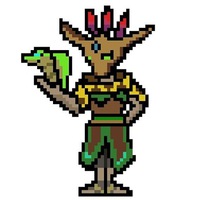
О чём данное стихотворение? Я не могу понять его смысл, помоги пожалуйста. В черном зеве печном
Красногривые кони. Над огнем — Обожженные стужей ладони. Въелся в синюю мякоть Рубиновый перстень — То ли краденый он, То ль подарок невестин. Угловатый орел Над нагрудным карманом Держит свастику в лапах, Как участь Германии. А на выгоне Матерью простоволосой Над повешенной девушкой Вьюга голосит. Эта виселица С безответною жертвой В слове «Гитлер» Казалась мне буквою первой. А на грейдере Мелом беленные «тигры» Давят лапами Снежные русские вихри. Новогоднюю ночь Полосуют ракеты. К небу с фляжками Пьяные руки воздеты. В жаркой школе — Банкет. Господа офицеры В желтый череп скелета В учительской целят. В холодящих глазницах, В злорадном оскале, Может, будущий день свой Они увидали?.. Их веселье Штандарт осеняет с флагштока. Сорок третий идет Дальним гулом с востока. У печи, На поленья уставясь незряче, Трезвый немец Сурово украдкою плачет. И чтоб русский мальчишка Тех слез не заметил, За дровами опять Выгоняет на ветер. Непонятно мальчишке: Что все это значит? Немец сыт и силен — Отчего же он плачет?.. А неделю спустя В переполненном доме Спали впокат бойцы На веселой соломе. От сапог и колес Гром и скрип по округе. Из-под снега чернели Немецкие руки. Из страны непокорной, С изломистых улиц К овдовевшей Германии Страшно тянулись. И горел на одной Возле школы, На въезде, Сгустком крови бесславной Рубиновый перстень. 1963 0
0
 0
0
Ответы на вопрос
 Внимание! Ответы на вопросы дают живые люди. Они могут содержать ошибочную информацию, заблуждения, а также ответы могут быть сгенерированы нейросетями. Будьте внимательны. Если вы уверены, что ответ неверный, нажмите кнопку "Пожаловаться" под ответом.
Внимание! Ответы на вопросы дают живые люди. Они могут содержать ошибочную информацию, заблуждения, а также ответы могут быть сгенерированы нейросетями. Будьте внимательны. Если вы уверены, что ответ неверный, нажмите кнопку "Пожаловаться" под ответом.

Если кратко, то:
Зима 1943 года. Холодно. В населенном пункте стоят немцы, однако скоро все изменится: с востока уже идет наступление советских войск. Немцы встречают новый год, пьянствуют, для развлечения в учительской стреляют в череп (наглядное пособие). Один из немцев не пьет и украдкой плачет, глядя в огонь печи. На пальце у него перстень с рубином. Через неделю бойцы Красной Армии взяли населенный пункт. Из-под снега торчат руки убитых немцев, и на пальце одной из них - перстень с рубином.
Общий смысл: война - зло. Кем бы ни был человек - от него ничего не останется.
 0
0
 0
0

About the Poem
The poem you provided is titled "В черном зеве печном" ("In the Black Furnace's Abyss") and was written by Russian poet Bulat Okudzhava. It was published in 1963. The poem is known for its cryptic and metaphorical language, which makes it open to interpretation. It reflects the poet's thoughts and feelings about various themes, including war, fascism, and the consequences of conflict.
Interpretation
Interpreting poetry is subjective, and different readers may have different interpretations of the same poem. However, based on the imagery and themes present in the poem, here is one possible interpretation:
The poem seems to depict a scene of war and its aftermath, with references to Germany, the Nazi regime, and the impact of war on both the German and Russian people. The poet uses vivid and symbolic language to convey his thoughts and emotions.
The image of "Krasnogrivye koni" (red-maned horses) in the black furnace's abyss could represent the destructive power of war. The burned hands above the fire may symbolize the suffering and sacrifice of those affected by war [[1]].
The ruby ring mentioned in the poem could represent wealth or power, possibly stolen or given as a gift. The eagle holding a swastika in its claws may allude to the fate of Germany under the Nazi regime [[1]].
The hanging girl and the blizzard singing above her could represent the tragic fate of innocent victims caught in the chaos of war. The gallows with its unanswered victim may symbolize the cruelty and injustice of war [[1]].
The "melom belennye 'tigry'" (chalk-white 'tigers') crushing the snowy Russian whirlwinds with their paws could represent the overpowering force of the German military [[1]].
The references to New Year's Eve, rockets, and drunken hands raised with flasks may symbolize the celebration of victory and the continuation of conflict. The officers aiming at the yellow skull in the teacher's room may represent the perpetuation of violence and the dehumanization of war [[1]].
The sober German shedding secret tears while staring at the firewood may symbolize the remorse or guilt felt by some Germans after the war. The Russian boy unknowingly driving away the tears with firewood may represent the ignorance or innocence of youth [[1]].
The final stanza describes soldiers sleeping in a crowded house, with the sounds of boots and wheels echoing outside. The blackened German hands reaching out from under the snow and the ruby ring burning with dishonorable blood may symbolize the lingering effects of war and the guilt associated with it [[1]].
Overall, the poem seems to explore the themes of war, its consequences, and the complex emotions associated with it. It invites readers to reflect on the destructive power of conflict and the human experiences that arise from it.
Please note that this interpretation is just one possible reading of the poem, and others may have different interpretations based on their own perspectives and experiences.
 0
0
 0
0
Похожие вопросы
Топ вопросов за вчера в категории Литература
Последние заданные вопросы в категории Литература
-
Математика
-
Литература
-
Алгебра
-
Русский язык
-
Геометрия
-
Английский язык
-
Химия
-
Физика
-
Биология
-
Другие предметы
-
История
-
Обществознание
-
Окружающий мир
-
География
-
Українська мова
-
Информатика
-
Українська література
-
Қазақ тiлi
-
Экономика
-
Музыка
-
Право
-
Беларуская мова
-
Французский язык
-
Немецкий язык
-
МХК
-
ОБЖ
-
Психология
-
Физкультура и спорт
-
Астрономия
-
Кыргыз тили
-
Оʻzbek tili




























